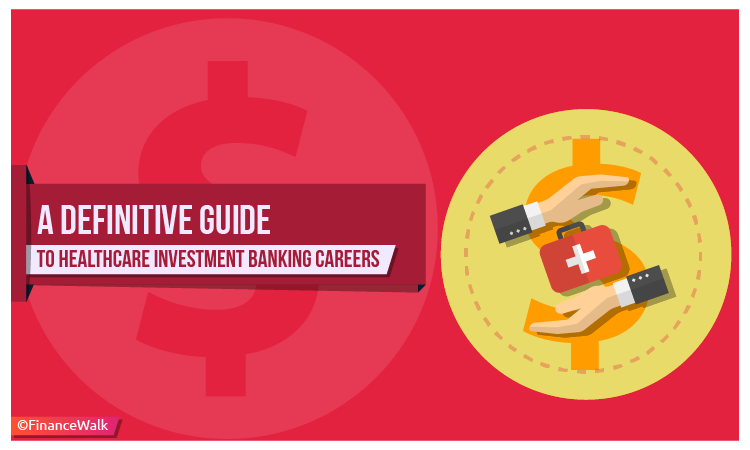Healthcare Investment Banking (HIB) 101
Deciding to be a banker has definitely become a dream in the past few years.
It holds the promise of a long, flourishing and successful career, plenty of opportunities to learn, travel, improve your skills or acquire a whole new set and meeting a lot of people with whom to make interesting business.
Deciding to be an investment banker takes things to the next level.
The skills one requires here are different, and you actually need a good dosage of talent, foresight, and perspicacity in order to succeed and become a good investment banker.
Deciding to be a healthcare investment banker is the top of the pyramid and adds one more thing to the pile already described – you also want to help people.
It will not be an easy task, this you should know from the beginning, and anyone who tells you otherwise probably doesn’t have your best interest at heart or is not familiar with the field.
But nothing that is easy was ever worth doing, so this shouldn’t come as a scare to you at all.
Apart from that, you need a starting point, and this is it.
Read on to find out all the information you need, as this article breaks down HIB and presents all its aspects and levels.
What is investment banking?
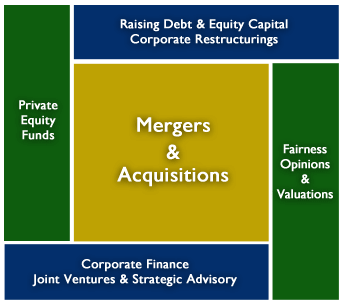
The field of investment banking, as well as some of its major representatives, have become wildly famous over the past years, but most people will have a hard time explaining exactly what investment banking really is.
Banks such as Goldman Sachs, Morgan Stanley, JPMorgan Chase, Deutsche Bank or Bank of America Merrill Lynch have become staples, so much so that they have even been used as references in movies and shows. But what exactly do they do?
For better comprehension, here is a practical example.
A practical example of how an investment bank works
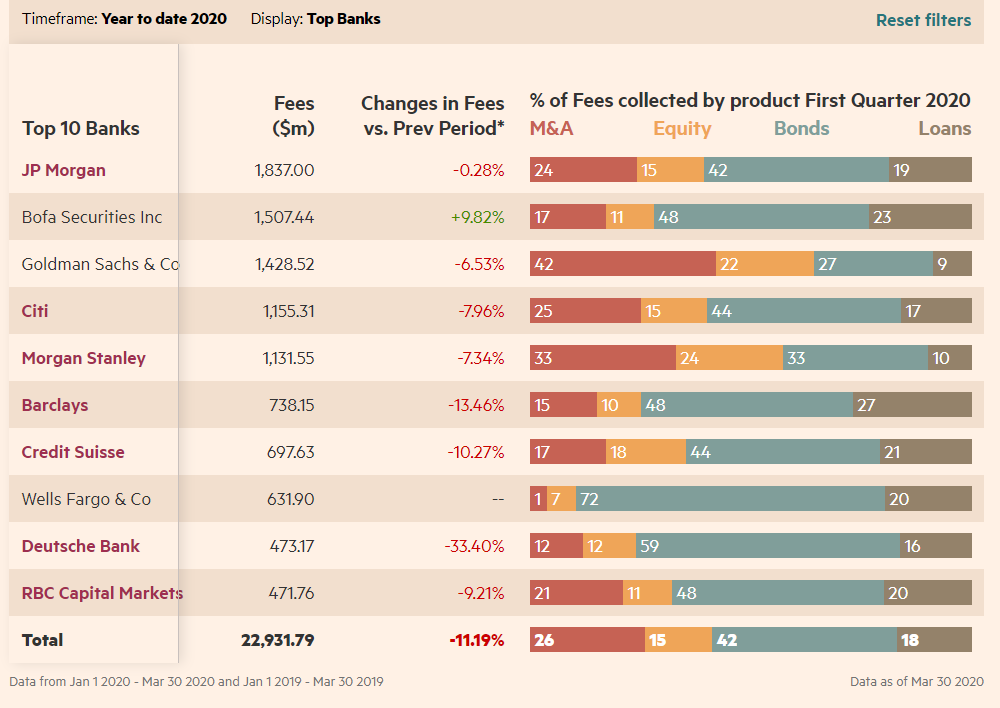
As per the League Tables published by Financial Times, investment banks earn their fees mainly from products and services like M&A, Equity, Bonds, and Loans.
Let’s say that there is a company called Tom and Joe’s Furniture.
Unfortunately, their capital situation is not very good, so they feel the need to turn to an investment bank in order to receive help.
The bank, called Thompson and Thompson, will appoint an investment banker to work on this particular account.
First of all, he will assess the company Tom and Joe’s Furniture and try to find out things like how much is it actually worth, how much capital do they need, what are their plans for the future, will they expand or, in other words, perform a risk management task which will help him decide on his offer towards the furniture company.
After careful consideration, the investment banker decides to offer Tom and Joe a deal consisting of him buying, on behalf of his firm, Johnson and Johnson, and not himself, 100 000 shares of the company’s initial public offering (or IPO), at the price of $15 per share.
This means that the bank will now be paying Tom and Joe’s Furniture $1.5 million.
For the bank to make its profit from the deal, it will then proceed to try selling the shares for a bigger price of, let’s say, $17 per share.
However, it has a hard time doing so and is actually forced to reduce the price in order to sell the shares, down to $12.
In this case, after the bank sells all the shares, it will have gained $1.3 million, but it will have lost $200 000 in the process, probably due to a wrong assessment to begin with.
This is the reason why it was stated in the beginning that investment banking will not be easy, but that it is very rewarding if done well.
What does an investment bank actually do?
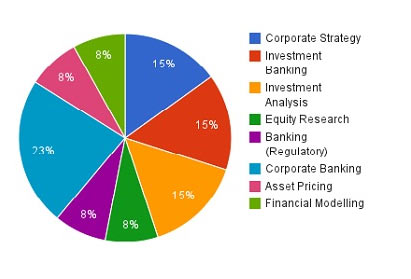
Basically and in very loose terms, the investment bank acts as a middle-man between a certain company, any company for that matter, that has decided to issue stocks and bonds in order to gain capital and some other companies that want to invest in it.
But investment banks also have a significant role in offering advice and consulting to companies on things such as mergers and acquisitions or when they should come out with a public offering.
They also help companies decide how to best manage their public assets, like stocks and bonds.
This is why Warren Buffet famously said that Wall Street is the only place where people ride to in a Rolls-Royce to ask for advice from people who take the subway.
What is IB in the Healthcare Industry?
Now that the ground was covered, and there is a clear understanding of what investment banks do, in general, the next step is for you to take a closer look at HIB.
Which is precisely everything described above only specialized in healthcare.
Only that one needs an excellent understanding of the healthcare market and all of its underlying issues.
Here are some grounds you need to cover and some things you need to understand.
#1. Do you need a certain medical-related degree to get involved in healthcare banking jobs?
No, you do not.
The business in itself is not so technical as to require you to know actual biology or drug development.
You will act as the financial advisor for a company; therefore, your quiver of arrows should include management, assessment, and people skills and, of course, finance knowledge.
However, as stated above, you do need to know how the healthcare business works, on a macro level.
And speaking of which:
#2. How does healthcare business work?
Pharmaceutical companies focus on different and specific drugs.
Meaning that some make vitamins, some make painkillers, and some make asthma pills.
They also concentrate on various segments of the market.
For example, some companies have as primary target over-the-counter drugs, while others focus on prescription pills.
They are also extremely dependent on their pipelines.
Time and process are of the essence of pharmaceutical companies.
They spend years developing a new drug and then it can take them up to 10 or even 15 years to get the patent for it, because of all the clinical trials that are required.
After that, they only have the patent for just a limited amount of time until it becomes “generic” and other companies swoop in and make prices go down very fast.
So, this is where the banker comes in because the pharmaceutical company will require proper and sound advice on how to best act on the market.
Research and development is the central area where they pay the most attention and money.
At the same time, clinical trials are the decisive factor as to whether their stocks and bonds’ prices will go up or down.
Good results of the clinical trials mean a significant amount of interest in the company’s stocks, while bad results mean no one will actually want to invest in it.
Interest in the company’s stocks means a lot of money for them, you, the banker and your investment company.
This is why healthcare is such an excellent business venue.
Technology is so advanced nowadays, cures and remedies are being found all the time for different afflictions.
This means that new drugs are being developed every day, with great success.
We now have a pill to treat almost anything.
Remember, a successful pill translates into money in the healthcare investment business.
Imagine, for example, if they actually found a cure for cancer, in the form of a pill.
If that happens, you will want to be working for the investment banks giving advice to that particular pharmaceutical company that developed it.
You are about to become unbelievably rich.
#3. Why choose investment banking in the healthcare sector?
Mainly because it’s safe.
As you, probably, already know, the market shifts a lot.
Stocks and bonds go up and down and their course can change in a blink of an eye. But not when it comes to healthcare.
Take a look at Finviz.com to see for yourself the betas of healthcare stocks.
Most of them are still below 1.0 and that’s because people will not stop buying pills and drugs no matter what, no matter how bad the economy is.
They might stop buying cars or perfumes, but not medicine.
Also, to better understand HIB, there are certain specialized websites you can read or follow, Dealogic’s Deal Alerts where you can focus solely on the healthcare ones.

Salaries in investment banks in the Healthcare sector

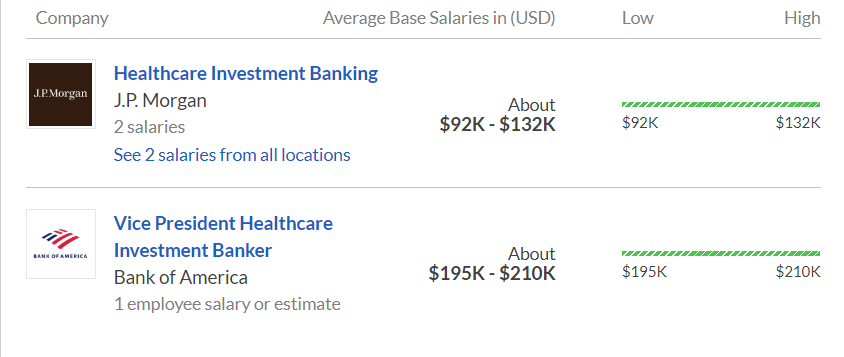
Everybody has seen the Wolf of Wall Street movie and, although making that kind of money doesn’t happen very often, salaries are definitely still good in the business.
As per the latest data available on Glassdoor, medium the average base pay is $92K annually in New York.
Of course, cash compensation can vary, because every company pays its employees differently.
Apart from that, some offer bonuses and others don’t, so wages can really differ from place to place.
Bankers working on accounts in the healthcare industry could see their wages go up by as much as 20 percent.
That’s because both healthcare and the media have been quite active today; therefore, the compensation will be bigger.
Jobs in healthcare investment banking
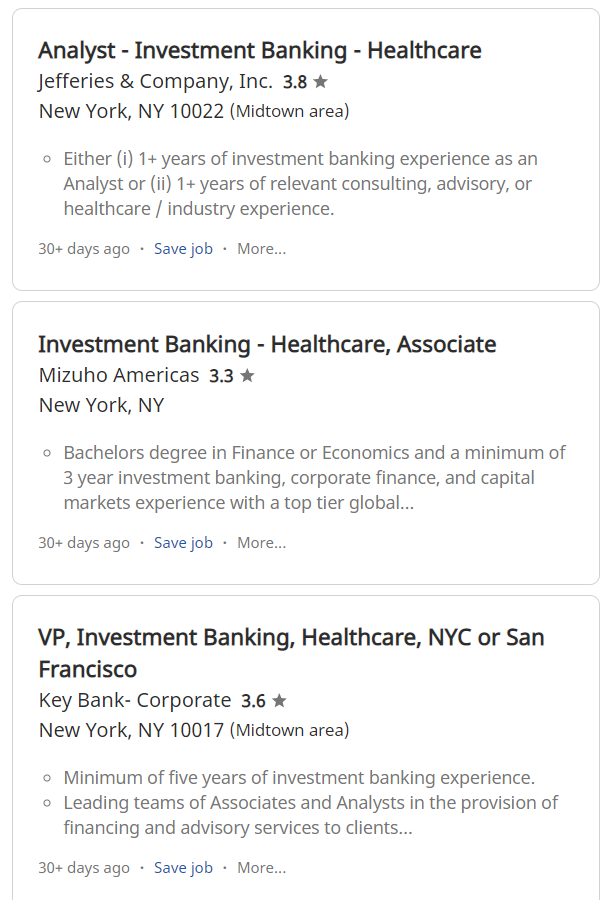
First of all is the reason why the high-profile bankers left their big companies, such as JPMorgan Chase & Co or Bank of America.
The number one reason is that they were seeking better wages.
The big guys pay excellent salaries, of course, but the little, growing players in the game will pay absolutely anything to have a senior, experienced high-profile banker in their portfolio.
It will attract many more customers and accounts and give the newly establish or emerging bank a lot more credibility.
For this, they are willing to enter into the salary-competition with the big fishes.
The second aspect that needs to be looked at with this particular piece of news is the fact that those bankers who left are, probably, going to end back there again at some point.
That has to do with a tangent touched above, meaning the pipeline.
In order to keep their pipeline moving and to stay on the market, pharmaceutical companies, apart from developing new drugs all the time, also acquire smaller companies.
Mergers and acquisitions are a big thing in this particular business segment.
They want to buy the patent for certain drugs, for example, but they can’t, so they merge with its producing company or they simply want to eliminate part of the competition.
Because, as shown, competition is a real problem when it comes to pharmaceuticals.
15 years of research, development and trials can go down the drain in the blink of an eye when their drug goes generic, and other companies start producing and selling it at lower prices. So mergers happen.
For this, companies need advice from healthcare services investment banks. Only that they will never go to the small ones.
So either they ask for the big ones help, or the big ones themselves merge and acquire other companies, leading to the fact that, ultimately, bankers will have ended up right where they started.
You can check current jobs available in healthcare investment banks here.
Trends in healthcare investment banking
As usual, it’s hard to predict what’s going to happen, even if we are talking about the healthcare sector, which, apart from Defense, is the most secure and stable one of them.
However, there are some trends one can look at for 2020.
Here are some things that will happen, nicely summed up in what PricewaterhouseCoopers has named The New Health Economy:
- According to them, consumers’ roles as decision-makers will increase more and more as time goes by.
- The main market maker in the healthcare sector will, eventually, become the federal government.
- Insurance reimbursements will turn into a very penny-pinching business.
- Most healthcare services investment banking groups are based in San Fransisco and New York.
A good idea is to take your time and visit JPMorgan’s website. They have also shared a video (see below) on their role as an investment banking partners in the healthcare industry.
Interviews in healthcare investment banking
As far as preparing for an interview for such a job goes, if you’ve read all that was shared above, you are ready to go. A few important pointers do remain, however, and here they are:
- Remember to combine theoretical with practical knowledge. You need to be able to apply all that you’ve learned so far. Also, the practicality should be up to date.
Meaning that, if you will give examples during your interview, make sure they are from 2020. If you are talking about trends, let them be for this year or the next.
Show that you can see into the future, which is exactly what this job is all about.
Your employer will not care for the fact that you’ve memorized some data about what happened back in 2010.
Show him you can tell what’s going to happen with a certain company by 2021. - Show you have people skills. This is a crucial part of the job.
You will be working with people all the time and, possibly with very important ones, such as powerful businessmen from big companies.
You need to know how to approach them and keep them happy. - Give evidence that risk management is your second nature. Not just at work, but in your personal life as well.
Tell your interviewer how you like to plan things ahead, are not a fan of surprises and can quickly assess what could go wrong in any given situation.
Using personal examples here will actually help, as your interviewer will see this is not a skill you acquired in school or after reading a book, but a natural one. - Be prepared, because they will invariably ask you the question “Why healthcare investment banking?”
For this, don’t try to look up answers on the Internet or ask someone else. Make it personal and show them you actually want to work there.
You can even say you want to do it for the money. That’s fine, as long as they can see you’re honest, and they can trust you.
If you’re hired, they will be placing a lot of responsibility on your shoulders, so show them you’re trustworthy and honest in your motifs.
League tables in healthcare investment banking
The segment’s league table is divided into three parts. Here they are, along with specific examples.
- Big banks which dominate the business: JPMorgan Chase & Co., Bank of America Corp., Goldman Sachs Group Inc. and Morgan Stanley are “the big four”. Fifth place is taken by Barclays and then Deutsche Bank.
- Smaller banks that are developing: Jeffries, Guggenheim Partners, and Greenhill & Co.
- Bottom banks: this category is comprised of virtually every other investment bank out there, competing for a share with the big guys.
So there you have it. This is your definitive guide to entering the healthcare sector investment banking business.
Remember to congratulate yourself every morning for your choice, as you’ve got a good career ahead of you.
Have questions? Write a comment below.
